Start Your Tenancy Agreement on the Right Foot
When a landlord finds themselves at a hearing at the Rental Board and ends up ‘losing’ the case, probably 99% of the time their loss is due to their OWN mistakes – from choosing the wrong tenant, to using a poorly-written lease agreement to lack of documentation of the circumstances of the situation as it unfolded to not following through with the correct process to remedy the situation. I always compare the concept of managing tenants with a classroom setting. We all know those awesome teachers that can run an orderly classroom environment with respectful, pleasant kids that stay on task and yet are still having fun and love their teacher. And then there are those classrooms that are dysfunctional and full of chaos; the students are not happy and the teacher is always angry and frustrated. Managing tenants follows the same principles as running a good classroom environment. Both kids and tenants like to know the rules ahead of time, and what will be the consequences when they break those rules. They also like consistency, which means they like when the consequences are enforced in the same way every single time. There is only one difference between kids and tenants. Kids can’t choose their teacher. Tenants, on the other hand, can choose whether they want to become your tenant or not, and likewise, a landlord can choose whether they accept that individual as a tenant. So, it is very important to let the tenant know what kind of landlord you are right from the beginning so THEY can decide whether they can live by your rules – or lack of rules. If they are the type of tenant that already knows that they will NOT be playing by your set of strict rules, they choose not to rent from you. They go rent from the landlord that doesn’t have an application form, a screening process or a comprehensive lease agreement with a clear set of rules and consequences. It’s as simple as that. They screen themselves.
The Application Form and The Screening Process:
Besides gathering the obvious information: name, contact information, current employment etc., there is a lot of additional information that is very necessary on the application form; information such as gross monthly household income, where they work and their work contact numbers, or social worker’s name and contact information, names of all other occupants that intend to stay in the property, enquiry about pets, previous landlord references, reason why they left their previous location, how long they intend to rent for, number of vehicles, whether they carry ‘tenant insurance’ and finally, authorization to perform a credit bureau check including getting the tenant’s SIN number and date of birth. We also leave a few blank lines for the tenant to write any other pertinent information about themselves, and it’s amazing (and shocking in some cases) what information people will write. It reminds me of the phenomena where people will go on the Dr. Phil show and tell their most personal and crazy stories on national TV. Sadly for them, this honest and forthright approach usually reduces their chances of getting accepted, but as landlords, it’s better to know these things before we rent to them rather than after.
The form should also state the terms of the application; whether you will be requiring the applicant to pay an application fee and the terms surrounding the payment of the damage deposit.
Lastly, the landlord should ALWAYS I.D. the applicant to make sure the applicant IS the same name on the application form. It’s the oldest trick in the book; someone comes to rent a property for their relatives or friend and has no intention of living there, but if the exact name on the lease agreement is the same person who is standing right in front of you, it is THAT person who is ultimately responsible and liable for the actions and payments for that property. Any red flags of something not matching up is reason enough NOT to rent to that individual. It’s always better to wait for the right tenant to come along. Never ignore those little red flags and settle for anything less than a quality tenant.
Performing an on-line Credit Check:
As a property management company, we believe it is a ‘must’ to run a credit bureau check on every applicant that we are seriously considering. As a corporation we subscribe to Equifax. It costs us about $15 per check, but it has saved us thousands of dollars and countless hours dealing with tenants who don’t have a good history of paying bills on time and in full, however, it is becoming less and less useful as more and more ‘new-to-Canada’ immigrants move here from foreign countries. There is no history on the majority of these immigrants, but they occupy a large percentage of our Canadian rental properties across the country. The good news is that these tenants generally are good tenants and do pay their rent on time and in full every month as they don’t want any trouble with their immigration process.
The Lease Agreement:
Using an inadequate Lease Agreement or no written agreement at all can have disastrous results. Most provincial Rental Boards provide some of the necessary forms to landlords for things like rent increases or evictions but in very few provinces do they provide a form for the Lease Agreement between a tenant and a landlord. So what essentially happens in those provinces where no lease agreement is provided, the landlord either writes their own agreement, which you can well imagine the amount of missing information in that case, or they download pages and pages of legal jargon from the internet and hope it applies to their province’s rules and regulations. I’m not a fan of downloading forms but given the complexity of a good lease, it may be a better option than the homemade version in some cases. I have heard of some landlords having their lease agreement drawn up by a lawyer, which ended up being as full of loopholes and errors and the homemade version. Having a law degree with no actual experience as a landlord, in my opinion, is not going to guarantee that that lease will be well-written enough to protect you in a rental hearing. Leases are something that must coincide with the local Residential Tenancy Act and also be comprehensive enough to deal with specific scenarios. Generally, if there are any errors or omissions on the agreement, the Rental Board will automatically rule in favor of the tenant. My best recommendation for the private landlord is to use a lease agreement that has been developed over time by a reputable property manager who has experienced firsthand all of the scenarios. I don’t believe property managers sell the rights to their lease agreement but since every tenant has a copy of the agreement, they are not overly hard to get ahold of and can be used as a template for individual purposes. What is not acceptable is if you take the sample lease agreement and whiteout the name of the company and insert your own name. This actually happened to our property management company. We were hired to manage a property, which was being managed, by one of our competitors and the lease agreement that came over was an exact copy of our lease agreement with the competitor’s company name and logo at the top. We called them and politely requested they re-write their own lease in their own words and refrain from using the exact copy of our lease. But in the end, I realized, that the highest form of flattery is when someone copies you, so I didn’t pursue the matter. It’s a good lease and it works so of course they would want to use it.
Another option is to join a Landlord Association that unites owners and managers to share information, ideas and get any updates on any changes to any changes to the Act. Typically, landlords and investors across the country are great at helping each other out and staying connected. If nothing else, they are great support for each other and provide great networking amongst like-minded people.
As a side note, it’s a very interesting fact that tenants tend to have more ‘tenancy’ problems that land up at a Rental Board hearing when the vacancy rate goes up in a city. At the same time landlords also become less strict about who they accept into their rental properties because there are fewer applicants. The number of trips a landlord will make to the Rental Board to resolve an issue goes up directly with the vacancy rate of the city. Therfore, tougher times call for tougher forms!
The Official Move-In/Move-Out Inspection Report:
Even if the laws in your province don’t require you as a landlord to perform a move-in inspection report, it is highly recommended that you do so – every single time a new tenant moves in – and take many photos that contain the correct date imprinted on that photo. It’s so easy to take digital photos these days and store them on the computer that there is no excuse not to take them. The ‘written’ inspection checklist/report is crucial because the tenant will sign it agreeing to the condition of the property at the time of move-in, but the ‘before’ photos tell the real picture and will be what the judge really considers if there is a dispute later on. Something a landlord has to be aware of is that a photos generally doesn’t show the extent of the damage as it really is. It’s an interesting thing. My staff will come back to the office with photos of a property that was left in absolute shambles by tenants and they are all ranting and raving of the horrible condition of the property. Interestingly enough, the photos don’t capture the essence of the mess. If it’s bad enough, I go to the property to see the real picture and am always amazed and appalled at the true picture. So photos are great, but they don’t really capture the details of the dirt, the smells and the damage, but they ARE better having just a written report.
Starting your relationship off on the right foot with good forms and routine procedures can save a landlord many headaches, money and stress in the long run. It’s worth it for any landlord to invest the time at the beginning of their landlording career to gather the necessary forms and meet with other landlords for support and information. Being a landlord is never an easy job but it can be more manageable with a good set of written rules with consequences.
by Kathy Berner






